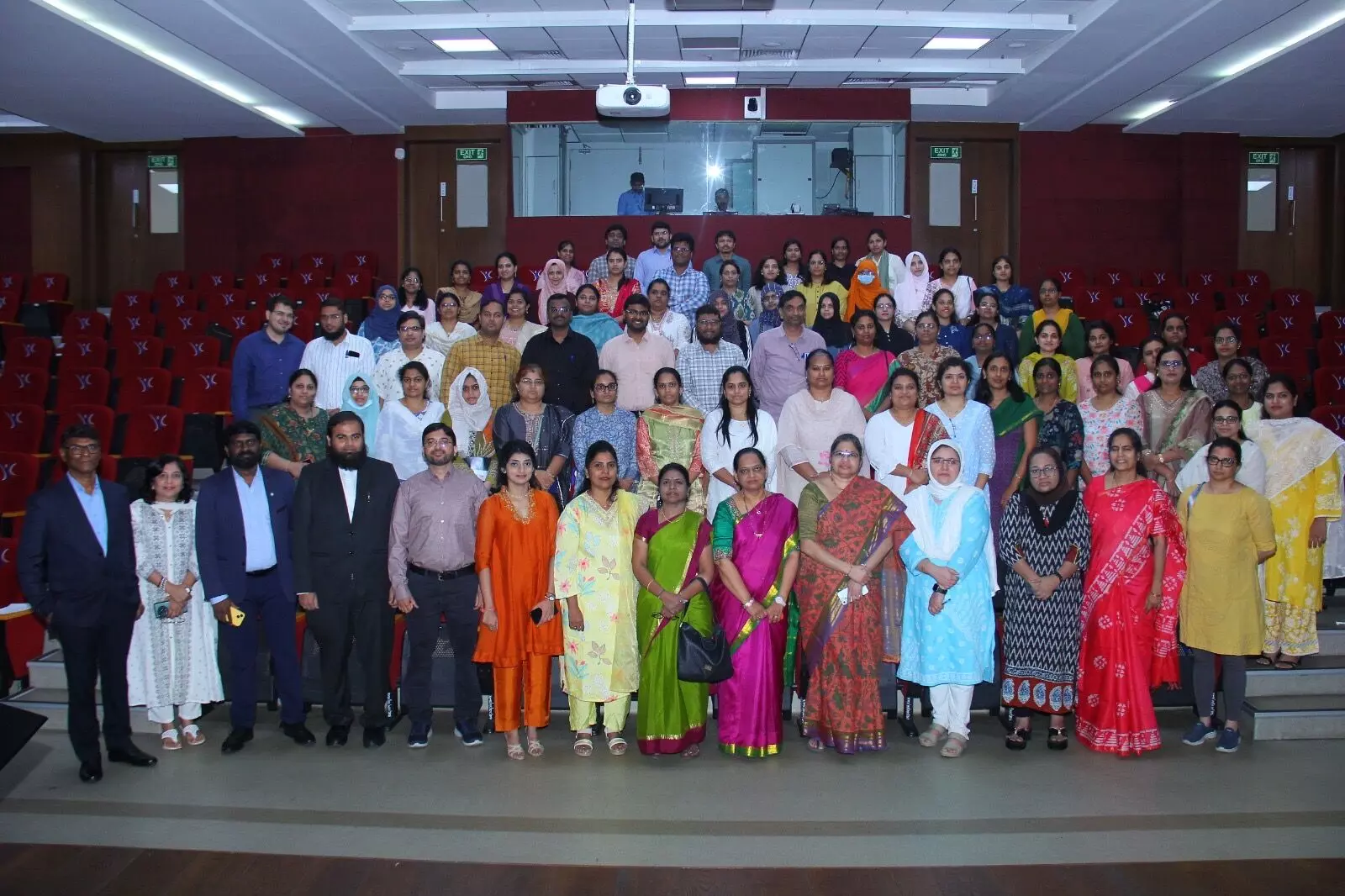Conference on Hemoglobinopathies: Why are doctors demanding hemoglobin checks at school level?
Medical experts call for raising awareness about inherited blood disorders among children, propose blood checks at school level
By Anoushka Caroline Williams
Hyderabad: Doctors recommend checking hemoglobin levels in school children to test blood disorders
Hyderabad: Medical experts have called for raising awareness about inherited blood disorders among children. The experts were addressing the `Conference on Hemoglobinopathies’ held at KIMS Hospitals this week.
The conference, focused on Hemoglobinopathies, brought together over 150 medical professionals, including postgraduate students, biochemists, and pathologists.
Need for School-Level Screening
A major point of discussion was the necessity of early blood screening in school-going children. Doctors recommended that students from grades 3 to 8 undergo hemoglobin checks as part of routine health assessments. If low hemoglobin is detected, further tests can confirm serious genetic conditions like Thalassemia or Sickle Cell Anemia.
“In certain parts of northern India, up to 20–30% of children screened have shown indicators of these disorders,” said Dr. Narendra Kumar Thota, Head of Hemato-Oncology and Bone Marrow Transplant at KIMS Hospitals. “Children with low hemoglobin should be evaluated further to differentiate between nutritional anemia and genetic conditions like Thalassemia or Sickle Cell Disease. Often, these disorders may be minor in one or both parents but can manifest severely in children.”
Call for Mandatory Blood Testing in Schools
Speakers at the event advocated for mandatory blood testing in both government and private schools to enable early detection and timely treatment. They highlighted that interventions at an early age can significantly improve life expectancy and quality of life in affected children.
“Early screening can help detect Thalassemia Major at a young age, allowing appropriate interventions through confirmatory testing,” Dr. Thota added.
Diagnostic Tools and Training Gaps
Panelists also pointed to the importance of equipping medical professionals with advanced diagnostic tools and skills. High-Performance Liquid Chromatography (HPLC) was identified as a key tool in detecting hemoglobinopathies. However, its effective use hinges on accurate interpretation.
Dr. Chandana Mareddy, Consultant Pediatric Hemato-Oncologist at KIMS Cuddles, stressed the need for better training. “Advanced diagnostic tools are available, but if we lack trained professionals to interpret them, we miss the opportunity for timely care.”
Senior Genetic Counsellor Dr. Pavani Upendram and Prof. Dr. M. Noorjahan, Head of Biochemistry at NIMS Hospital, echoed this concern, highlighting the gap in professional knowledge and the need for specialized education in diagnostic methods among pathologists and biochemists.
Conference Leadership and Participation
The event was led by Dr. Radhika Choudhary, Head of Lab Services at KIMS Hospitals. Organising Secretary Dr. Mohammed Mounuddin and Dr. M.A. Muqeeth coordinated the program and acknowledged the contributions of all participants.
“Our goal is not only to discuss these challenges, but to create a practical roadmap that integrates early screening into existing public health efforts,” Dr. Choudhary noted during the closing session.
The conference concluded with a collective agreement that bridging knowledge gaps and implementing structured screening programs are key to reducing the burden of hereditary blood disorders in India.